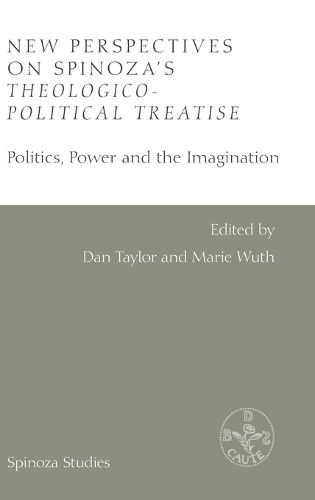Readings Newsletter
Become a Readings Member to make your shopping experience even easier.
Sign in or sign up for free!
You’re not far away from qualifying for FREE standard shipping within Australia
You’ve qualified for FREE standard shipping within Australia
The cart is loading…






Published surreptitiously in 1670, Spinoza's Theologico-Political Treatise transformed early modern Europe, destabilising widely-held ideas about authority, prophecy and biblical scripture, while arguing for democracy, free speech and religious toleration. Dismissed by one contemporary as a book 'forged in hell by the Devil himself', and suppressed soon after publication, the Theologico-Political Treatise had a tremendous influence from the Enlightenment, to German Idealism, to late-20th century Marxism. Today, a growing interest in Spinoza's political theory is connected to a longing for a counter-narrative to the Western tradition of philosophy and political thought, for which Spinoza is becoming a major point of reference.
This collection brings together expert and early career perspectives on Spinoza's politics of freedom, democracy, critique of religion and authority, the imagination, equality and violence. While providing valuable contextual material on the Theologico-Political Treatise on its 350th anniversary, the collection brings Spinoza's politics into debate with contemporary political theory.
$9.00 standard shipping within Australia
FREE standard shipping within Australia for orders over $100.00
Express & International shipping calculated at checkout
Published surreptitiously in 1670, Spinoza's Theologico-Political Treatise transformed early modern Europe, destabilising widely-held ideas about authority, prophecy and biblical scripture, while arguing for democracy, free speech and religious toleration. Dismissed by one contemporary as a book 'forged in hell by the Devil himself', and suppressed soon after publication, the Theologico-Political Treatise had a tremendous influence from the Enlightenment, to German Idealism, to late-20th century Marxism. Today, a growing interest in Spinoza's political theory is connected to a longing for a counter-narrative to the Western tradition of philosophy and political thought, for which Spinoza is becoming a major point of reference.
This collection brings together expert and early career perspectives on Spinoza's politics of freedom, democracy, critique of religion and authority, the imagination, equality and violence. While providing valuable contextual material on the Theologico-Political Treatise on its 350th anniversary, the collection brings Spinoza's politics into debate with contemporary political theory.